 What Is the Jewish Concept of Charity?
What Is the Jewish Concept of Charity?
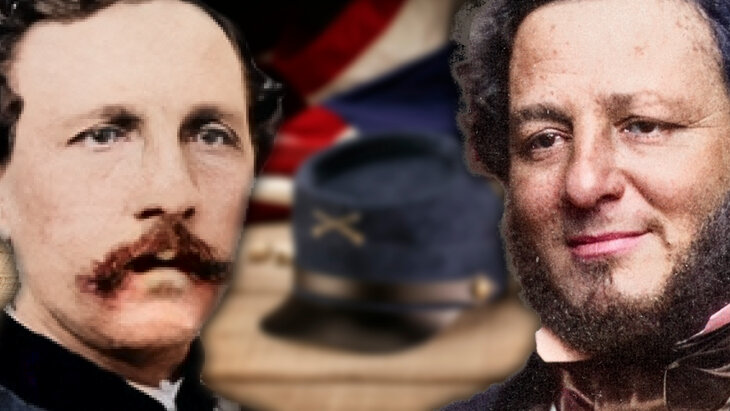

5 min read
During the American Civil Wars, Jews served their country with steadfastness and valor.
On November 19, 1863, President Abraham Lincoln addressed a broken nation over the fresh graves of thousands of Americans. He opened his speech with the now-famous words, “Four score and seven years ago our fathers brought forth on this continent, a new nation, conceived in Liberty, and dedicated to the proposition that all men are created equal.”
These words are steeped in meaning for me personally. I imagine how it must have felt for my great-great-great-grandfather, Daniel Epstein, to hear his commander-in-chief assert that “all men are created equal,” as he stood at-attention in his Second Lieutenant Union uniform, a position he could only dream of attaining as a proud and open Jew in most other militaries worldwide at the time.
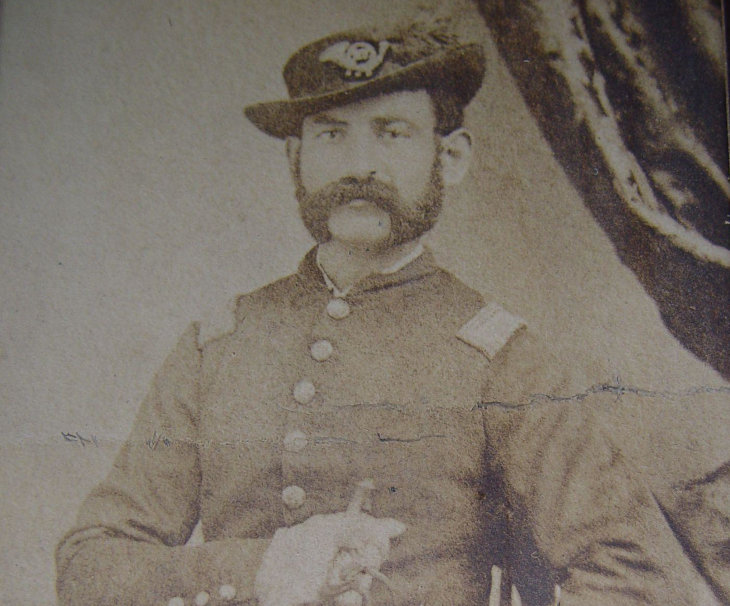 The author’s ancestor, a Civil War veteran, poses in his uniform.
The author’s ancestor, a Civil War veteran, poses in his uniform.
The American Civil War became the great crucible where the young country’s commitment to unity and equality were tested. For Jewish Americans, like my great-great-great-grandfather, the war became a litmus test where they proved their loyalties to their countrymen. It also became the era where their loyalty was reciprocated. Jews served in high positions, displayed valor in battle, won awards, and, most importantly, were largely given equal opportunity and treatment to attain these feats.
In 1840 there were about 15,000 Jews living in the United States. By 1860, that number had increased by a factor of ten. The reason for this rapid expansion? Waves of Jews from German-speaking areas of Europe flocked to the United States. They came seeking economic opportunity, religious freedom, and freedom from persecution. Some had also been involved in revolution attempts in Germany. When these revolutions failed to achieve liberalization and anti-monarchical policies, Jewish supporters fled to freer pastures.
Sometimes a large wave of immigration can lead to a backlash of intolerance. However, the four-score-year-old nation warmly welcomed its Jewish immigrants. Equal opportunities and an attitude of tolerance allowed Jewish immigrants to prosper in the United States. When war broke out, Jews responded in kind, serving their newfound communities patriotically, bravely, and tirelessly.
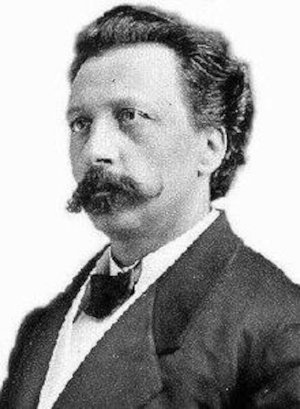 Edward Salomon
Edward Salomon
The remarkable story of the Salomon family clearly displays America’s tolerance towards Jewish immigrants in the 19th century, and these Jews' mutual requital and service to their country. Only 13 years after fleeing Germany, Edward Salomon became the first openly Jewish governor in American history, a remarkable achievement at the time. As the wartime Wisconsin governor, Salomon put his heart and soul into supporting the Union. He personally became involved in recruiting 14 fighting regiments, increasing the wheat output needed to feed the troops, and passing legislation allowing active soldiers to vote.
Salomon had two brothers in America who proudly and patriotically served their country on the battlefield. Frederick Salomon, a major general, became the highest-ranked Jewish Union officer. Another brother, Charles, became brigade general. A Salomon cousin, Edward Salomon held a colonel position during the war, and afterwards became the governor of Washington territory and later the State Legislator of California.
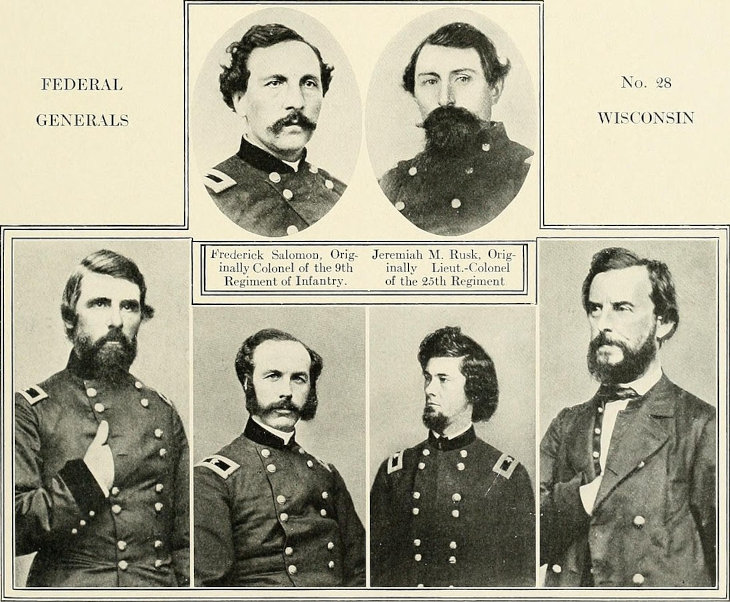 Frederick Salomon held a major general rank, the second highest rank. (Public domain)
Frederick Salomon held a major general rank, the second highest rank. (Public domain)
On the other side of the Mason-Dixon line were devoted and politically active Confederate Jews. Before the war Judah Benjamin, nicknamed the “brains of the Confederacy”, made headlines as the first openly Jewish senator, and a sharp and erudite legal scholar. This won him the admiration of Jefferson Davis, who appointed him as the Confederacy’s attorney general. Benjamin then got promoted to secretary of war, where he oversaw all the logistics, and coordinated the war effort for the South. As the war drew to a close, Benjamin became the Confederate secretary of state, before fleeing to Europe when the Confederacy fell, where he restarted a successful legal career.
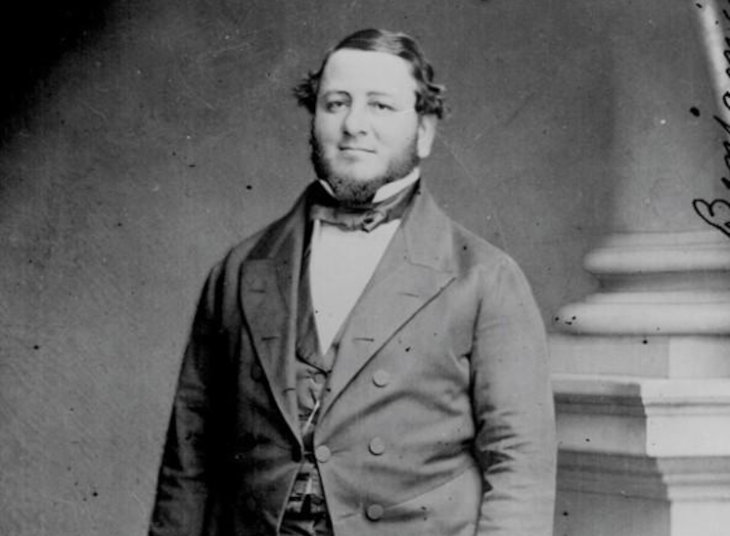 Judah Benjamin, the brains of the Confederacy
Judah Benjamin, the brains of the Confederacy
The Civil War era is known as a watershed era for greater equity in the United States military. In 1861, thousands of Jews were fighting for the Union. The non-Jewish Ohio state representative, Clement Vallandigham, argued successfully to amend the bill that only allowed for Christian army chaplains. Vallandigham testified that, “There is a large body of men in this country, and one growing continually, of the Hebrew faith … whose adherents are as good citizens and as true patriots as any in the country.” This landmark amendment provided for greater religious freedom in the United States military.
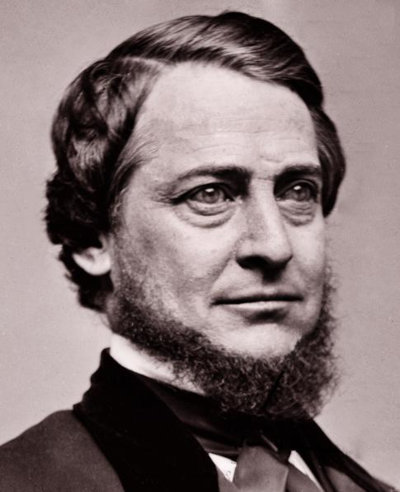 Clement Vallandigham
Clement Vallandigham
Meanwhile, as Vallandigham asserted, men of the “Hebrew faith” were indeed good citizens and patriots who displayed valor in combat. Five Union Jewish soldiers earned Medals of Honor. The first was Benjamin Levy, who became the first Jewish Congressional Medal of Honor recipient in history. Levy was a drummer boy, but after his comrade fell ill with malaria, Levy took up his gun and marched into battle. When Confederate soldiers shot down the color bearer during the Charles City Crossroads battle, drummer-boy-turned-warrior Levy raised the flag in his stead, and evacuated it from the field at great personal risk.
Brave and patriotic Jewish soldiers, like Levy and like my ancestor Daniel Epstein, paved the way for integration of Jews in the US military. President Lincoln, intoned in his Gettysburg address “that this nation, under God, shall have a new birth of freedom -- and that government of the people, by the people, for the people, shall not perish from the earth.”
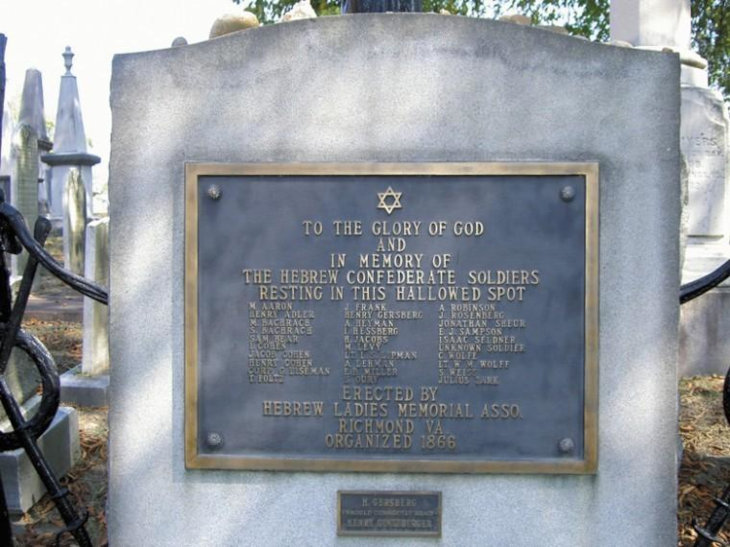 A memorial in the Jewish Military Confederate Cemetery, in Richmond, Va.
A memorial in the Jewish Military Confederate Cemetery, in Richmond, Va.
Indeed, Jews during that era did perceive America as a “new birth of freedom” and a “government of the people.” They were treated with tolerance in the country built on religious freedom, and they in turn reciprocated by serving with steadfastness and valor.
Like many other Jews, my family will always be personally grateful for the opportunities America provided my ancestors that allowed them to actualize their identities as proud Jews and proud Americans.
